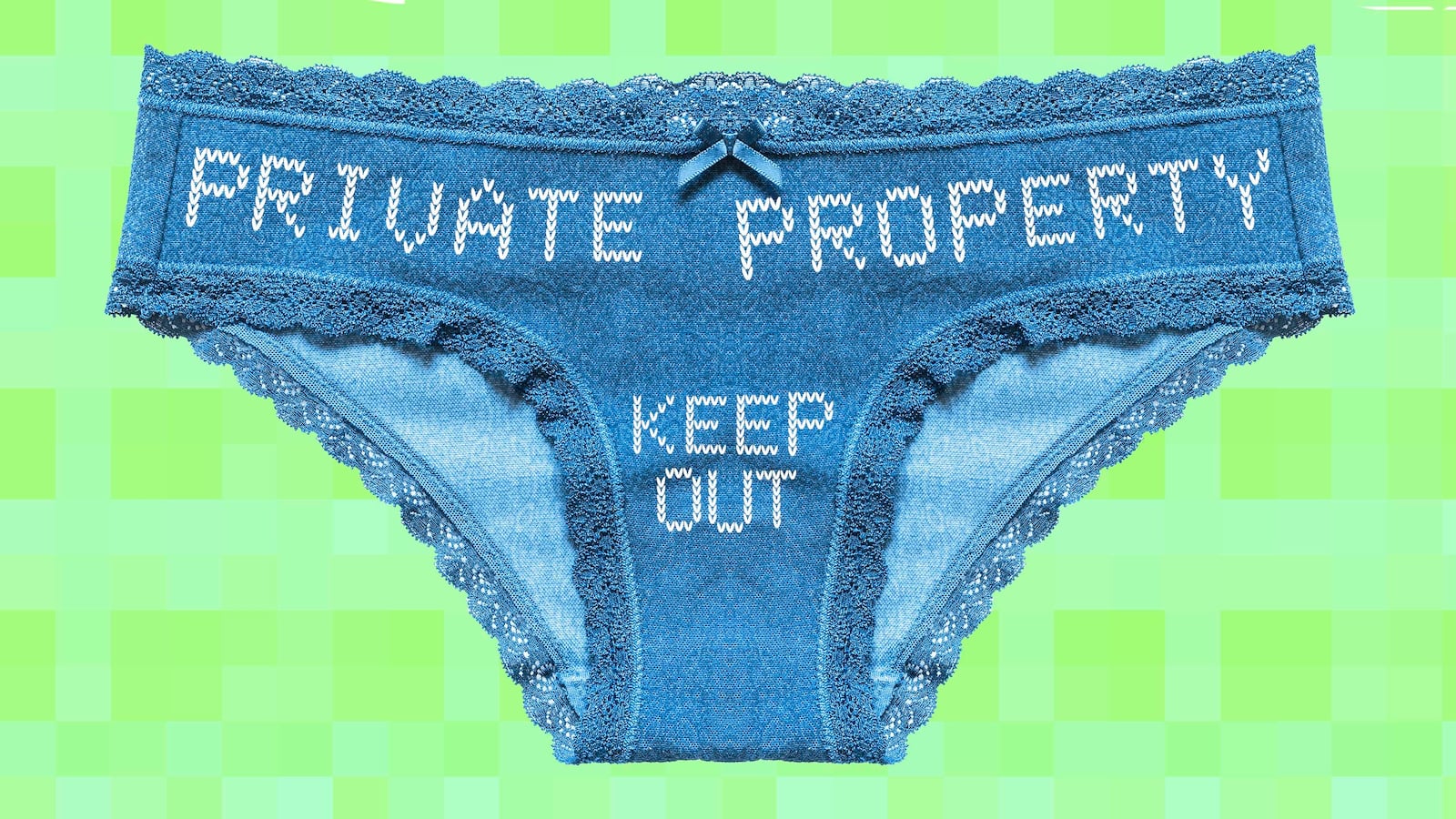When Sasha was in college, she did what a lot of young women her age do: she Googled which birth control would work for her. But after some research, the answer seemed to be: none of them. Almost every method had drawbacks: increased risk of irregular bleeding, depression, menstrual cramps, or pelvic infections.
When Sasha began her first sexual relationship, she ended up temporarily taking hormonal birth control pills. But she was so nervous about those failing that she always used condoms as backup. (The Daily Beast is using a pseudonym at Sasha’s request.)
All the drama made Sasha wonder if she even wanted to have children at all. “I realized that the things I had been looking forward to about having kids were almost exclusively limited to the idea of seeing a future significant other being happy to become a father,” she said.
But when it came to her own feelings, Sasha “dreaded almost every other aspect of being a parent.” She didn’t want to experience pregnancy, the trauma of childbirth, the financial burden of raising a little one. And she worried how being a parent would “directly inhibit [her] ability to achieve other goals in life.”
Sasha spent time volunteering with children to see if she’d change her mind. It only solidified her feelings. “I didn’t dislike the kids, [but] I just wasn’t comfortable there,” she said. “I realized that parenting a young kid would just not be for me.”
She began researching permanent contraception in the form of a sterilization procedure. Sasha made the decision to not have sex until she could afford the surgery. To this day, she hasn’t been able to get one. So Sasha, who is now 25 and lives in Minneapolis, hasn’t had sex since her sophomore year of college.

When Sasha began her first sexual relationship, she ended up taking hormonal birth control pills, but always used condoms as backup.
William B. Plowman/Getty“I feel as though I’ve had to put part of my life on hold,” Sasha said. “Even if I were to meet someone today who was perfect for me and I wanted to be in a serious relationship with them, I would have to wait until we could move forward with that part of our relationship.”
Part of the problem, Sasha and others say, is how difficult it can be for young women and non-binary people to convince doctors they will not “regret” opting into a procedure that leaves them unable to have children for the rest of their lives. Women in the United States must be 21 to have their sterilizations covered by Medicaid or the Indian Health Service. Those with private insurance do not have that age restriction.
One study cited by the American College of Obstetricians and Gynecologists (ACOG) reported that around 20 percent of women who get the procedure before they are 30 feel “regretful” afterwards. That risk of regret drops down to 6 percent for women who are sterilized after age 30.
Still, ACOG lists sterilization as the most common form of contraception for married couples, with 18.6 percent of American women aged 15-49 getting permanent contraception.
To find encouragement, Sasha has trolled the r/Childfree subreddit, where users provide support to like-minded internet friends who also don’t want to become parents. The subreddit has a pinned Google Doc where users can share the names and contact information for doctors who have helped them get the procedure and spoke to them in a respectful, judgement-free manner.
Sasha recently saw a health-care provider for a different issue and mentioned that she was planning on having her tubes tied. To her “surprise,” the doctor was very supportive “right from the get-go.” Though this specific practitioner is not a surgeon, she plans to refer Sasha to the right doctor for the procedure.
“She suggested that I write a letter about why I don’t want children and why I want the procedure, as this may help convince doctors who may be concerned about performing permanent sterilization on a person my age,” Sasha said. “She also warned me of a doctor who requires his patients to see a psychologist and have them sign off on the procedure before he will agree to perform it. I suspect that doctor does not require his patients to have a psychologist sign off on their decision to have children, which arguably has a far greater impact on someone’s life than not having them. This policy sends the horrible message that the decision to not have children is most likely the result of a mental illness.”

"A gynecologist ligates the fallopian tubes on a model of the female reproductive system."
Henadzi Pechan/GettyNisha Verma, MD, the Darney-Landy Fellow at ACOG and a complex family planning specialist, told The Daily Beast that, “There is still some paternalism where there’s a provider who won’t do permanent contraception or tubal ligations for younger people or those who haven’t had kids. I’ve seen some people who have been turned away from other doctors. But many of us have intentionally shifted from that and are counseling patients instead of telling them what to do. We talk about the potential regret and that this is permanent, but feel that it’s important to provide permanent contraception to people who feel that this is something they really want, whether they’re 18, 21, or relatively ‘young’ people.”
Dr. Verma added that it’s normal to see patients who feel like they have to “prove that they deserve” permanent contraception. “I don’t want them to feel like that at all,” Dr. Verma said. “I preface the conversion by saying, I’m here to honor your decision whatever that is, I just want to have a conversation about all of the options.”
Kristy MacLennan, a psychology honors student from Perth, Western Australia, recently completed a research study and thesis on the lived experiences of childfree women who have been refused sterilization surgery by doctors. She spoke with 11 people for this project. Many participants said they developed tokophobia, or the fear of being pregnant, because of how difficult it was to get their procedures done. This led some to avoid sex completely.
“The situation ended up splitting me and my partner at that point up, just because I kind of went through a stage after that where I was just like, ‘I don't want to have sex at all if this is going to be the outcome,’” one woman told MacLennan. Another newlywed said, “For the first almost year of our marriage, living together and like, our intimate life was almost non-existent because I was so terrified.”
Even when Sasha gets her sterilization procedure completed, she suspects she’ll still have trouble feeling comfortable being intimate with others. “I’ve been thinking about this for so long now that I suspect even after I do have the surgery, it will probably be a while before I can get over the fear and the idea that I could get pregnant any time I have sex.”
Matt, an 18-year-old college student from Central Florida, has never had sex—and he doesn’t plan to until he’s had a vasectomy. “It’s cooled down the [number of people] who I can reasonably go out with,” he said. “I haven’t dated anyone. I went on one date, but the issue is she said she wanted five children. So when I told her that I don’t want kids, we just became friends.”
He once told his family pediatrician that he wanted a vasectomy, and the doctor told him that he would change his mind eventually. In response to answering people who ask why he doesn’t want children, Matt has created a list of reasons on his phone’s Notes app.
“Well for one, there’s the whole climate thing,” he said. “The world going down the drain is a good way to put it. There’s overpopulation and the financial burden.” Other reasons are more mundane: “I like getting my sleep and I’m very sluggish if I don’t get a whole lot of it, there’s annoying stuff that small children do, plus having to plan vacations with children is difficult, and I don’t want to hold up any lines because my kid is doing something that’s getting in the way of anyone.”
Lynn, a 32-year-old woman from the Shetland Islands, off Scotland, who works as a farmer and uses both she/they pronouns, has always known she didn’t want to be a mother. “As a 3 or 5-year-old, I’d get into a bad mood and stop playing if I was made to be a mom to our dolls,” she said. “I wanted to be the dad, out doing work and not left stuck with the baby.”
In her early twenties, Lynn went to a nurse to discuss how she could improve her “hellish” and “agonizing” periods that left her taking days off of work to lie in bed in crippling pain. When she mentioned getting a hysterectomy, the nurse told her to quit working “men’s jobs,” and to find work as a receptionist or in a school. That experience discouraged Lynn, and she’s never gone through with the procedure.
Lynn did have sex with a partner she dated in her twenties, and she always wanted to use condoms. He didn’t like to use them. “I had said to my boyfriend the first conversation that we ever had that I was not a marriage person and someone who didn’t want children and he was fine with that... until his actions and words proved otherwise a few months into the relationship.”
Lynn alleges that her former partner would sexually assault her while she slept so he did not have to use condoms. This led to a pregnancy scare that left Lynn unwilling to have penetrative sex ever again. “I know that even 99.9999% effective pregnancy prevention wasn’t good enough for me,” she said.
Lynn broke up with her partner, but later got pregnant as the result of a different rape. She got an abortion, but felt so traumatized by the encounters that she swore off sex, and men, for good.
While the decision to not have children—and, for some, therefore sex—remains deeply personal to every individual, there is evidence to suggest the choice falls in line with declining birth rates in the United States.
Melissa S. Kearney, a professor of economics at the University of Maryland, recently co-authored a report on the “The Puzzling Fall of Birth Rates Since the Great Recession.” The paper found that between 1980 and 2007, US birth rates “generally fluctuated within a narrow range of roughly 65 to 70 births per 1,000 women between the ages of 15 and 44.” But since 2007, the numbers have “plummeted, reaching 55.8 in 2020, about a 20 percent decline over 13 years.”
This reduction impacts women “across many demographic subgroups,” meaning there’s no one type of woman who’s having less children. Women with and without college degrees, teens, and women of differing races are contributing to the steep drop-off in birth rates.
“We tentatively speculate that women who were raised in the 1990s and 2000s have ‘shifted priorities,’ as compared to the previous cohorts of women who grew up in earlier decades,” Kearney told The Daily Beast. “The different life decisions of these more recent cohorts of women with regard to childbearing could reflect changes in preferences for having children, aspirations for life including career and leisure goals, and parenting norms. Specifically, the fact that parenting is a much more intensive activity than in previous decades.”
Kearney added, “Anecdotally, one hears some young women refer to the climate crisis as a potential factor affecting their decision making, but I don't know if that is a driving force for these women or how widespread that sentiment is.”
Haidong Wang, an associate professor of health metrics sciences at the University of Washington who specializes in demography and economics, said that it will take a few years to know for certain how the pandemic impacted birth rates. “But if you follow cohorts of women who were born in 1950, 1960, 1970, and on, you will see a steady decline in their fertility,” Wang said. “Even if COVID hadn’t happened, there are no reasons to believe that the fertility rate would increase.”
All of the people who spoke to The Daily Beast about their decision to remain abstinent until they can get sterilized felt like they would not regret their decision as they got older.
“If anyone asks me that, I just say, ‘Well, I won’t change my mind,’ and I leave it at that,” one 17-year-old from Arkansas who plans to get the procedure done when she’s 21, said. “If they try to continue and argue with me, I just blow them off.”
“Almost no one asks you if you think you might change your mind...they just tell you that you will,” Sasha said. “I have thought it through very well and my mind has not changed for seven years. If I am someone who as a person radically changed, then I could adopt. If they are still distraught, I point out that IVF would still work, too.”
Most of the women who spoke to The Daily Beast said that they were tired of being second-guessed as if their decision to not have children were irresponsible. To them, it’s the opposite—they feel it’s quite responsible, actually, to not complicate a new life by exposing it to their own problems.
“I’m not some poor, loveless, hate-filled being,” Lynn said. “I knew from a young age that people are bad to each other, and that if I could prevent anyone from suffering the badness of other people, I would prevent it,” Lynn said. “And that means not bringing another person into the world.”







